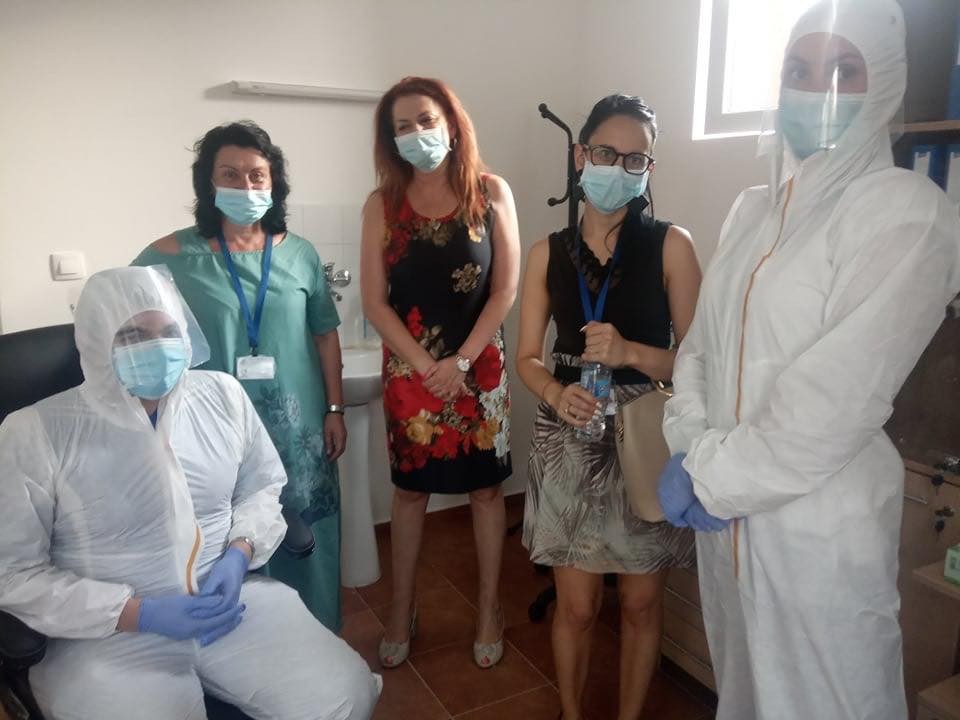If foreign citizens temporarily residing in Bulgaria experience symptoms resembling a coronavirus infection, they will receive immediate medical assistance, the Sofia Regional Health Inspectorate assures. People with this condition can go to any hospital.

"Those who come from EU member states should bring a European health card with them," explains Dr. Irina Gaitanevska from the Sofia Regional Health Inspectorate. “Through it, they will receive the medical care that every EU citizen deserves. All other foreign nationals need to contact the relevant Regional Health Inspectorate, where they will be assisted."
The websites of the Bulgarian Ministry of Health, Regional Health Inspectorates and other government institutions also contain useful information, yet it is mostly in Bulgarian. According to Dr. Irina Gaitanevska, no distinction is made in hospitals between Bulgarians and foreign citizens and everyone receives adequate medical care for their condition, regardless of the complicating epidemic situation and the expected shortage of beds.
Unlike foreigners who need to go directly to hospitals, Bulgarians with a suspected coronavirus infection should first contact their GP. It is their GP who decides whether to refer them to a medical institution or to recommend them to stay at home. And if they still need further medical care, they will be taken to the coordination centre of Sofia’s Infectious Diseases Hospital, which has been operating for two months now.
"This is the place that receives all transported patients from the Emergency Medical Centre with suspected coronavirus infection during the initial examination at home," explains Dr. Irina Gaitanevska in an interview for Radio Bulgaria. “There they are thoroughly examined, a more in-depth information of the history of their sickness is collected and, if necessary, tests are performed. If the person needs hospitalization, they are admitted to a medical institution, where they will receive the most adequate medical care. And if the person needs to stay under home treatment, they will be monitored by their general practitioner."

When a doctor at the coordination center decides that it is good for the patient to have a PCR test, it is performed free of charge. "But this is not a laboratory that anyone can go to and be tested for a coronavirus infection," Dr. Irina Gaitanevska explains.
All citizens - Bulgarians and foreigners - can decide to do a PCR test at their choice with an average price of BGN 120 (60 euro) and a quick test for the presence of antibodies to coronavirus for about BGN 30 (15 euro) in licensed laboratories throughout the country. By an order of the Ministry of Healthcare of October 21, 2020, the Minister of Health has designated 65 medical, healthcare institutions and regional health inspectorates which are licensed to conduct a highly specialized medical diagnostic test called "Polymerase chain reaction (PCR) for the detection of Covid-19". They are located in Sofia, Varna, Stara Zagora, Burgas, Plovdiv, Pleven, Kardzhali, Razgrad, Ruse, Vratsa, Silistra, Haskovo, Pervik, Veliko Tarnovo, Asenovgrad, Petrich, Montana, Sliven, Gabrovo, Shumen, Blagoevgrad, Gotse Delchev and Panagyurishte.
Photos: BGNES and Sofia Regional Health Inspectorate
Sugar artist Mariya Ozturk's latest masterpiece - a model of St Peter's Basilica in Rome - prompted us to reach out to our fellow Bulgarian during the bright holiday season. Though she’s been straddling life between Bulgaria and Istanbul for years, she..
The Bulgarian-American Cultural Association “Rosa” in Atlanta invited our compatriots to celebrate Easter today from 1:00 p.m. local time at Pinkneyville Park, Medlock Pavilion (the large pavilion) 4758 S Old Peachtree Rd Norcross, GA 30071...
Artist Vanya Petkova from Kardzhali paints non-traditional icons, depicting saints on ostrich eggs . She started about 15 years ago with images of Jesus Christ and the Virgin Mary. The first egg she painted is still intact and is kept by her relative...
The Speaker of the National Assembly Natalia Kiselova will today award the winners of the 32nd Children's Easter Festival in the Serbian town of..
Sugar artist Mariya Ozturk's latest masterpiece - a model of St Peter's Basilica in Rome - prompted us to reach out to our fellow Bulgarian during the..
A colorful Easter celebration under the slogan “Let’s sing and dance on Easter, on the square” will take place today in the open air in the town of Stara..

+359 2 9336 661
